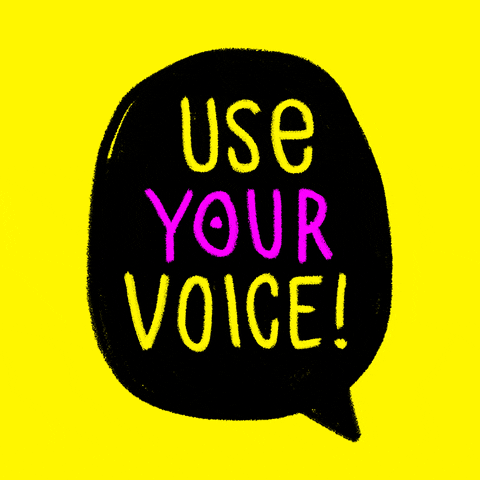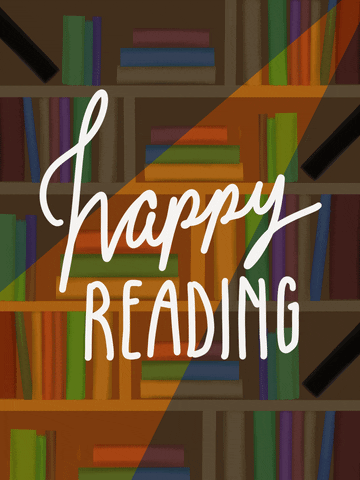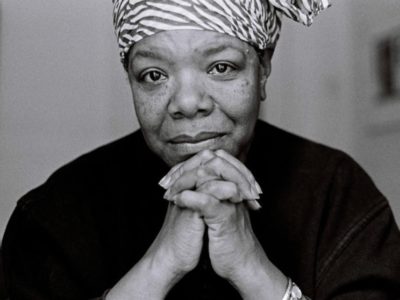Choosing and designing your major at university is, in my opinion, an extremely personal decision. It can be based on uncertainty, a desired career or a childhood passion you are intent on pursuing. My case? That of the latter. Writing is something I love and leaned on since childhood; when the time came to start Hofstra University, it didn’t feel like there could possibly be anything else I would do. One of my first adult decisions? Choosing to be an English major: the first step I took towards pursuing my passion for storytelling. Since then, I published a short story, meet other talented writers and explore different genres. Rapidly ending as it began, the end of my university years looms. and along the way, I made mistakes and grown from them. Because of that, I believe I can offer some insight that’s worth passing down to new college students, especially if you’re a Black woman like me, still deciding what to study.
Check out just a few of the things I learned while studying English Literature at Hofstra University:
1. Do Not Lose Faith For Your Passion, Perseverance Will Carry You Through

In any creative profession, rejections and hardships will greet you first, even while in college. Whether it’s navigating a difficult text, struggling to find an internship, stories being declined (over and over and over..), failing an exam or just keeping up in a creative writing workshop, an easy path’s only guaranteed for a privileged few.
When I experienced these difficulties, it put my passion for writing into question. The doubt, once a quiet hum in my mind, loudened into an almost deafening sound that made its presence known with each failure and mistake. When you put so much of yourself into something, it hurts to see it constantly discarded.
At Hofstra University, I got put into an environment with other writers with astronomical talent, and who also seemed to achieve everything that I found myself failing at. The combination of comparison and doubt created deep-rooted anxiety for my future. If I were to offer any advice, however, I would tell you what I tell myself: don’t lose faith and keep on persevering. Someone will see you soon.
I realize how cliche that sounds, and how everyone maintains their own specific complexities in their life, but it’s something I wholeheartedly believe. When I think of the writers I look up to—James Baldwin, Octavia Butler, Toni Morrison, Edwidge Danticat—I tell myself I can’t give up in the face of hardship. Those are writers whose stories contributed so much to literature, and whose lives each had countless tribulations. Yet, their voices were still heard, and this world’s far better for it. A dream may never become real, but you won’t know unless you give it your all.
2. No Question is Invaluable

One of the benefits of the small size of Hofstra’s English department? The professor knows the names of all the students in your class, and from my experience, will offer their advice if asked for it. The world of writing and publishing can seem so inaccessible, especially without connections.
Hofstra’s professors come from a background of professional writing, teaching and publishing. Take advantage of that. It’s definitely something I wish I did more of in my earlier years at university. It’s easy to believe that professors won’t answer your questions, or think them to be invaluable, but if there’s something you truly want to know, ask. When I did, the answers I received were not just helpful, but they gave me insights that benefited me as I pursued my career.
3. Never Stifle Your Voice

As I mentioned, my advice is informed by my experience existing as a Black woman at Hofstra University. With that, comes an entire realm of difficult experiences I encountered through the years. In my classes, I am often the only or one of few Black students. Whether it’s a creative writing workshop or literature course, I’d sit in classes where the coursework clearly got designed without me in mind. I would write stories that were influenced by my family’s culture or express my thoughts on racism, only for it to be received by those who just didn’t understand.
“With spaces like that as a Black person, when you have to censor your own creativity, it’s definitely a little bit harmful because you’re definitely not being your truest self. I was feeling a little bit boxed in at times,” Hofstra University senior Praise Flowers said.
You should never feel as if you must stifle your voice or censor your individuality for the sake of other’s ignorance, especially if they never made an effort to understand who you are in the first place.
4. Take Advantage of Resources

For writing, an integral key in making connections is simply putting yourself out there. No one will see your work if you have nothing to show. At Hofstra University, writing contests, guest speakers and events go on continuously throughout the year.
“While I developed amazing relationships with those few professors and learned a lot from them, one thing that I regretted at graduation was that I had missed the opportunities to learn from other professors whom I had heard were equally as great,” Hofstra graduate Cecilia Gray said.
When authors come to the university themselves, they read their work and participate in a Q&A session afterward. As a writer, that’s perhaps one of the best resources at Hofstra. Hearing a writer come in with their work and offer their advice brought extreme insight. They answer any questions students may pose. As you’re planning out your career and are attending Hofstra, make sure to leave those sessions with notes.
5. Explore Different Internships

Throughout college, you’ll be discovering what your career path and interests may be. As an English major, there’s plenty of things you can explore aside from writing or publishing. For me, I chose the route of writing for different magazines and publications to build a portfolio. That could be something you do as well.
If you want to go into publishing, apply for internships or part-time jobs at publishing houses. One of the best programs for publishing exists at Hofstra University, and different companies constantly hold networking events for students. While you’re at school, attend an event hosted by a publishing company to see what they might be looking for.
However, if find yourself not sure publishing or writing stands as your intended career, the English major can be used to study what you’re interested in while planning to continue a different path in the future. The skills you develop in your studies won’t just be useful for the creative arts, but business management, law or even medicine as well.
6. Supplement Your Studying

In the English major, your classes get garnered towards your specific concentration. In my case, I took mostly creative writing workshops and literature courses. Aside from your major, however, there’s classes you should take to supplement your experience. Going into writing without knowing how to market yourself or understanding finances shouldn’t be done.
I would recommend taking a minor in business or economics. At the least, take a class or two. This creative profession’s difficult to navigate and understand. Knowing how to present your content to different distributors or publishers will be something that you need.
I would also advise taking classes in psychology, political science or history. So much of writing involves research and understanding the human experience. Exposing yourself to different subjects will broaden your perspective, and in the long run, strengthen your writing.
7. Manage Your Time

When you take on the English major, you take on four years of reading long texts, analyzing literature from various centuries and writing countless essays. Whatever your chosen concentration, the amount of work you will receive will undoubtedly feel monumental. It’s easy to get overwhelmed, but think of ways to keep up with all of your tasks.
One of the most important pieces of advice I’ll give: invest in a planner. I realize some prefer digital organizers, and if that suits your learning style, use them. I do believe that having all your assignments and due dates laid out in front of you helps in managing your time. Seeing what you need to do allows you to plan out how you’ll complete your assignment, whether it’s an essay or an exam.
For essays specifically, it’s important to outline first. The essays you’ll write feel long and tedious, and without a plan to write them, it will overwhelm you. Before you write any essay, choose a thesis, outline your plan and write in pieces. Not only will it make essay writing easier to do, but it also makes your topic feel less intimidating when you plan.
8. Find Other Friends in Your Major

When I began my first semester at Hofstra, I mostly felt isolated from other students. All my life, I attended schools that were predominately Black, and entering an academic space like that felt daunting. With a department as small as the English department, it seemed especially harder to find people to relate to.
If you’re a Black student starting in the English major, you’ll need to find your own community. There’s no guaranteed tip or advice I think I’m equipped to give for this, as it’s something I’m constantly navigating. What I will say is that finding your people takes time and effort. For me, I found other Black English majors, which made me feel less alone. I found students that I could connect to and understood the frustrations I felt as a Black student at Hofstra.
9. Consider Continuing Your Education

I will contextualize this by saying that this isn’t something you need to do. You don’t need an MFA to be a writer, and it wouldn’t be something I’d recommend going into serious debt for. I put this advice in here solely to encourage you to continue your education if it’s something you want to do. With graduate school, you can take the time to go deeper into your area of study and strengthen your expertise. Additionally, it will give you time to prepare for a career and discover your passion.
10. Remember to Read For Fun

Studying English literature or creative writing consists of daunting amounts of reading each week. At times, I’d need to read over 100 pages in one week. That amount of text makes reading feel more like a chore than a pastime, and it could cultivate resentment for all the books you will need to read.
When you get thee time, try reading something completely different from your course load. Discovering genres that were not associated with my coursework kept my love for reading consistent. Who knows? You may even find a new genre of literature to fall in love with.
Take some time for yourself outside of school. If you’re constantly working, constantly studying, you will burn out. In my opinion, creating a balance between self-care and nurturing your passions is key to surviving the English major at Hofstra University.



















